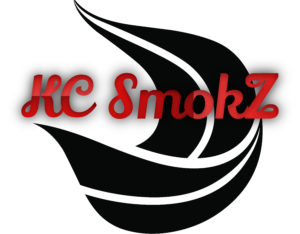Cannabinoids, the chemical compounds found in cannabis, have been the subject of growing interest as more people seek natural alternatives for wellness and relaxation. Among these, Delta-9 THC, CBD, Delta-8 THC, and CBG stand out as some of the most prominent. While they all come from the same plant, their effects and uses vary dramatically. In this blog, we’ll break down the key differences between Delta-9 THC and these other cannabinoids to help you better understand how each one works.
Key Statistics: How Delta-9 THC Compares
Before diving deeper into the specifics, it’s helpful to look at some stats that highlight the popularity and effects of each cannabinoid:
- Delta-9 THC is still the most popular and widely consumed cannabinoid in the U.S. Over 18 million Americans reported using cannabis in 2021, primarily due to its intoxicating effects and presence in recreational marijuana products.
- CBD has skyrocketed in popularity, with over 64 million Americans trying it between 2019 and 2020 for its non-psychoactive benefits, like anxiety relief, according to a report from SingleCare.
- Delta-8 THC is gaining attention as a milder alternative to Delta-9 THC, particularly in states where Delta-9 is illegal. It’s now estimated that one in three cannabis users have tried Delta-8 THC.
- While less well-known, CBG is emerging for its potential in addressing inflammation and neurodegenerative diseases. According to some industry reports, its use will grow by 60% in 2022.
Delta-9 THC: The Potent Classic
Delta-9 THC (tetrahydrocannabinol) is the most well-known cannabinoid and the primary psychoactive compound in cannabis. It binds directly to CB1 receptors in the brain, producing the “high” that recreational cannabis users seek. Aside from its recreational use, Delta-9 THC is also used medicinally for pain relief, appetite stimulation, and reducing nausea, particularly in cancer patients undergoing chemotherapy.
However, Delta-9 THC’s psychoactive nature can cause anxiety and paranoia in some users, which has led to the rising popularity of other cannabinoids that offer therapeutic benefits without such intense effects.
CBD: Non-Psychoactive and Therapeutic
Cannabidiol (CBD) has made waves for its non-psychoactive properties, which means it doesn’t get you high. Instead, CBD interacts with the body’s endocannabinoid system indirectly, providing relief from anxiety, pain, inflammation, and even epilepsy. The FDA has approved one CBD-based drug, Epidiolex, to treat severe forms of epilepsy.
Unlike Delta-9 THC, CBD is legal in most parts of the U.S. when derived from hemp, which contains less than 0.3% THC. This has made CBD a staple in wellness products ranging from tinctures to skincare.
Delta-8 THC: The Milder Cousin
Delta-8 THC is a lesser-known cannabinoid that’s chemically similar to Delta-9 THC but with important differences. It also binds to CB1 receptors but does so less effectively, resulting in a milder high. Users report that Delta-8 offers relaxation without the anxiety or paranoia that sometimes accompanies Delta-9 THC use.
Its legality, however, is a gray area. Delta-8 is often synthesized from hemp-derived CBD, and while the 2018 Farm Bill legalized hemp derivatives, some states have specifically banned Delta-8 due to its psychoactive properties.
CBG: The New Frontier in Cannabinoid Research
Cannabigerol (CBG) is a non-intoxicating cannabinoid that’s earning a reputation as the “mother of all cannabinoids” because it serves as a precursor to both THC and CBD in cannabis plants. While present in smaller quantities than Delta-9 or CBD, CBG shows promise in various therapeutic areas, including its anti-inflammatory, antibacterial, and neuroprotective effects. Preliminary studies suggest that CBG might be particularly effective in treating conditions like inflammatory bowel disease (IBD) and glaucoma.
Conclusion: Choosing the Right Cannabinoid
Whether you’re seeking the psychoactive effects of Delta-9 THC or the more therapeutic, non-psychoactive benefits of CBD and CBG, understanding the differences between these cannabinoids is key. Delta-9 THC might be the go-to for those looking for a strong high, while CBD and CBG offer a wide range of health benefits without altering your mental state. Meanwhile, Delta-8 THC provides a middle ground for those wanting a milder version of the traditional THC experience.
If you’re curious about trying different cannabinoids, always check the legal status in your state, as regulations can vary. And, as always, consult with a healthcare professional to determine which cannabinoid might be best for your specific needs.

